Metabolic health is a huge concern for many people—especially since roughly one-third of Americans have metabolic syndrome, a cluster of health markers that puts them at increased risk of type 2 diabetes, obesity, heart disease, and other chronic health conditions. (1).
Nutrisense is a metabolic health company that helps people understand their blood sugar levels through continuous glucose monitoring, a food and activity tracking app, and health coaching from registered dietitian nutritionists (RDNs). Many people are using glucose monitors and have successfully used Nutrisense for weight loss, improving metabolic health, stabilizing blood sugar levels, and optimizing athletic performance.
In this Nutrisense review, I share my perspective on Nutrisense as a registered dietitian, including its benefits and drawbacks, who I believe it’s best for, and how to get the most from your membership.
Medical disclaimer: This article is intended for educational and informational purposes only. It is not intended as a substitute for medical advice. For health advice, contact a licensed healthcare provider.
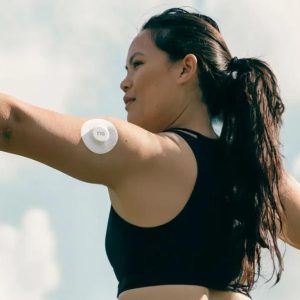

Key product features
What you should know
Nutrisense is a subscription service and app that provides continuous glucose monitors (CGMs) and personalized blood sugar insights to help you understand your metabolism. Here are a few things to note about the service:
- Nutrisense can show you exactly how your blood sugar levels respond to meals, exercise, sleep, and stress—which can ultimately help you make lifestyle changes to support your metabolic health.
- Nutrisense is a premium service starting at $225 per month but provides robust tracking features, expert advice from registered dietitians, and prescription blood sugar monitoring tools.
- Nutrisense provides valuable insights for those wanting to know more about their metabolism but may be particularly helpful for athletes or people trying to lose weight.
What is Nutrisense?
Nutrisense is a wellness company that offers continuous glucose monitoring, a feature-packed food-logging app, and access to coaching from registered dietitians.
Using continuous glucose monitoring while also logging what you eat and your activity, you can easily identify how foods, meals, exercise, sleep, and meal timing affect your blood sugar levels.
Although it does center around blood glucose, Nutrisense isn’t for people with diabetes who require insulin. It’s marketed towards people with other health goals that may be affected by blood glucose control, like weight loss or athletic performance.
Pullquote: “Nutrisense is an excellent CGM for non-diabetic patients who are looking to regularly track their blood glucose for preventative healthcare purposes. It is the ideal system for monitoring your diet, exercise, and sleep and using this data to maximize your overall health.”
Dr. Aneesha Dhargalkar, a board-certified emergency medicine physician.
With a Nutrisense subscription, you’ll receive continuous glucose monitoring devices every month, plus full access to the Nutrisense app and dietitian-led coaching to support your wellness goals.
Specs
| Type | CGM and metabolic health program |
| Cost | $225+ per month |
| Prescription | CGM prescriptions provided |
| Application | Nutrisense app |
| App compatibility | iOS, Android (NFC compatible) |
| User age | 18+ |
How does Nutrisense work?
Here’s what you can expect after you sign up for a Nutrisense membership.
Continuous glucose monitoring
Nutrisense provides two Freestyle Libre CGM sensors each month. These small devices can be quickly and painlessly placed on the back of your arm. Each device continuously measures your blood glucose (sugar) level for two weeks. Research suggests a minimum of two weeks of CGM data is needed to get a reliable understanding of someone’s blood sugar patterns. This information is important for making adjustments to medications, diet, and lifestyle habits. (2) (3)
To set up your CGM, you must download the Abbott LibreLink and Nutrisense apps.
The instructions on the LibreLink app will guide you through preparing, placing, and calibrating the device. Then, you can connect it to the Nutrisense app for real-time insights into your blood glucose levels. You will need to scan your sensor about three times a day, as it only retains around 8 hours’ worth of data at a time.
Although I haven’t tried Nutrisense, I have used Freestyle Libre CGMs in the past. I found these monitors painless and very easy to set up. Additionally, when I compared the readings from my Freestyle Libre CGM with readings from a glucometer, they were always very similar, helping to reassure me of the monitor’s accuracy. Many research studies have also shown the accuracy and reliability of CGM data. (4) (5) (6)
One-on-one support from Nutrisense’s nutritionist
Nutrisense also has a team of RDNs who provide one-on-one coaching to Nutrisense members.
Dietitians are credentialed nutrition experts who can provide more tailored, advanced advice than non-credentialed health coaches. They can help you interpret the data you receive from Nutrisense, set goals, and make concrete plans to achieve them.
Dietitian access is free for the first thirty days of your membership. After that, it’s available for an extra monthly fee. However, you may qualify for free ongoing dietitian support through your health insurance.(7) (8) (9)
Nutrisense app
The Nutrisense app uses the blood glucose data collected from the Freestyle Libre device and synthesizes it with the food and exercise data you enter. This way, it can provide custom insights to help you optimize what, when, and how much you eat to meet your health goals.
Some of the data it provides includes:
- Blood glucose charts detailing averages, fasting glucose, variability, and spikes.
- Meal glucose scores that detail your blood glucose response to food.
- Breakdown of the macronutrients, vitamins, and minerals in the meals you log.
All of this data, plus the coaching and feedback within the app, can help you make realistic changes to your nutrition, exercise, and sleep habits that can really improve your metabolic health.
In addition, the Nutrisense app gives you access to the Nutrisense community, where you can connect with other users. This level of interaction and peer support can help you stay motivated, and some research shows that it’s a key factor in achieving health goals like weight loss. (10) (11) (12)
The app can sync with other health, wellness, and nutrition apps and wearables like Google Fit, Apple Health Kit (Apple Watch), Oura Ring, and Fitbit.
How much does Nutrisense cost?
Nutrisense has a fairly high price tag. However, prepaying for a longer subscription period at once can save you a significant amount.
Additionally, it regularly offers cost-saving promotions for new users.
Subscription options
Nutrisense currently offers four plans based on plan length:
- One month/month-to-month: $399 per month
- Three months: $299 per month
- Six months: $250 per month
- 12 months: $225 per month
Each subscription comes with a free month of in-app dietitian access. After this first month, you can purchase additional dietitian access—which, in many cases, may be covered by your health insurance.


Pros and cons of Nutrisense
Nutrisense uses CGM technology to help people get a glimpse into their unique metabolism. CGMs can precisely show how your blood sugar levels fluctuate throughout the day, revealing useful data that may help you learn how to make better health choices, specifically related to the type of food you’re eating and when you’re eating it, along with optimal sleep and exercise patterns.
“Several lifestyle habits can affect our blood sugar levels, like the food we eat, physical activity, sleep, and stress. The real-time data and patterns from your CGM can empower you to make healthier choices, such as cutting down on highly processed foods, eating more nutrient-rich, fiber-packed whole foods, staying active throughout the day, getting better quality sleep, and finding ways to manage stress.”
Dr. Simran Malhotra, Fortune Recommends Medical Advisor
Additionally, Nutrisense offers one-on-one coaching from RDNs and access to the Nutrisense community. Having this ongoing support from a health professional and your peers on the Nutrisense app may make it easier for you to achieve your health goals.
However, the biggest drawback of the Nutrisense program is its cost. With plans ranging from $225 to $399 per month, it’s unlikely that many people will be able to afford it long-term.
Who should use Nutrisense
Nutrisense is an excellent fit for anyone who wants to know more about their blood sugar metabolism. Athletes can use the data from Nutrisense to tweak and optimize their nutrition and training regimen. People who want to lose weight can learn more about foods and combinations that satisfy them and prevent hunger-inducing blood sugar crashes. Likewise, people with prediabetes can use Nutrisense to help improve their blood glucose management and reduce their chances of developing type 2 diabetes.
“Nutrition plays an important role in regulating our blood sugar,” says Dr. Malhotra. “And while our bodies are all different, there is one key principle that is important for everyone to remember. Our bodies rely on carbohydrates for energy, but not all carbs are created equal. Processed refined carbs can cause a rapid spike in blood sugar levels, whereas complex carbs have a slower, more sustained effect. The key differentiating factor is fiber.”
Who should not use Nutrisense
There are certain people for whom Nutrisense is not a good fit. According to the Nutrisense website, the following people should not sign up for their service:
- People under 18
- Pregnant women or those who are trying to become pregnant
- People taking insulin or any diabetes medications other than metformin or pioglitazone
- People undergoing cancer treatment
- People with a diagnosed eating disorder
Additionally, Nutrisense may not be ideal for people with disordered eating patterns who don’t have a diagnosed eating disorder. If you know that a program like Nutrisense may lead you to develop an unhealthy preoccupation with your food choices or health habits or cause you to feel anxious or stressed about the data you receive from your CGM, it may not be right for you now.
Is Nutrisense worth it?
Nutrisense can give you a comprehensive understanding of how your lifestyle—including food choices and meal timing, exercise, sleep, and stress levels—affects your blood glucose. Using the insights provided by Nutrisense, many of its users have successfully lost weight, reversed their prediabetes, or improved their physical performance. Although expensive, Nutrisense’s CGM program may be a worthwhile investment if you want to learn more about fueling your body optimally.
Compare Nutrisense
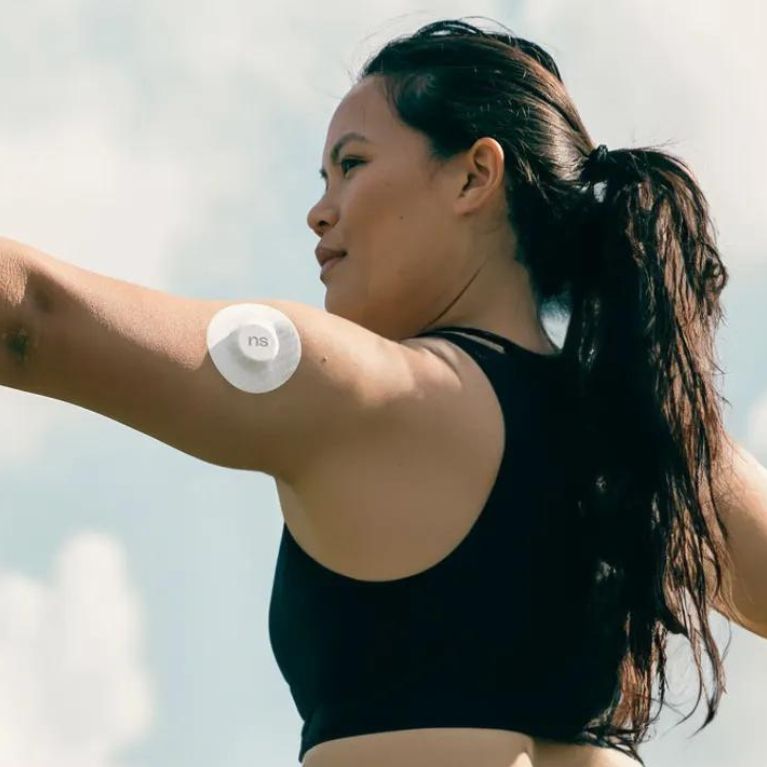
|
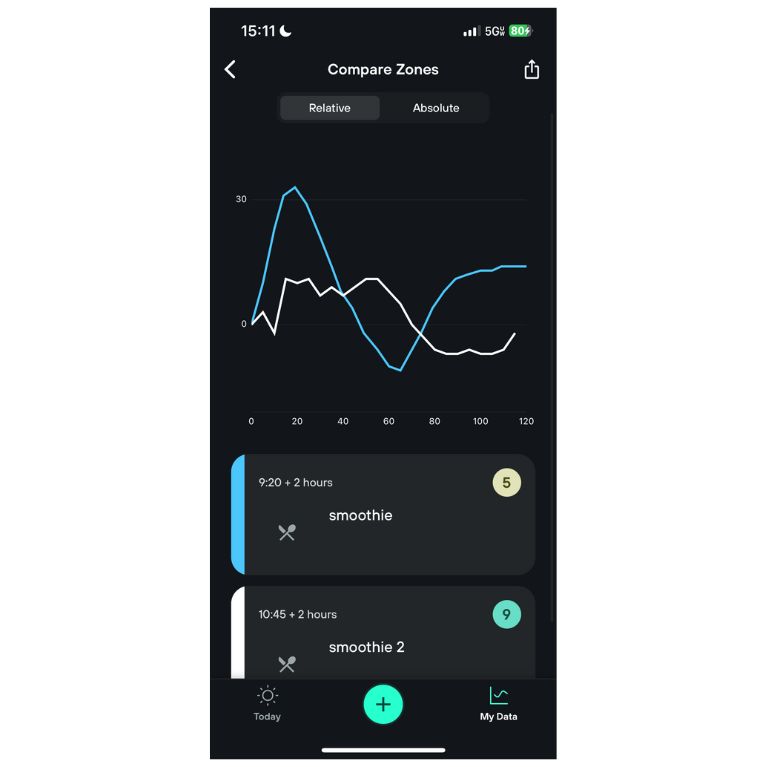
|
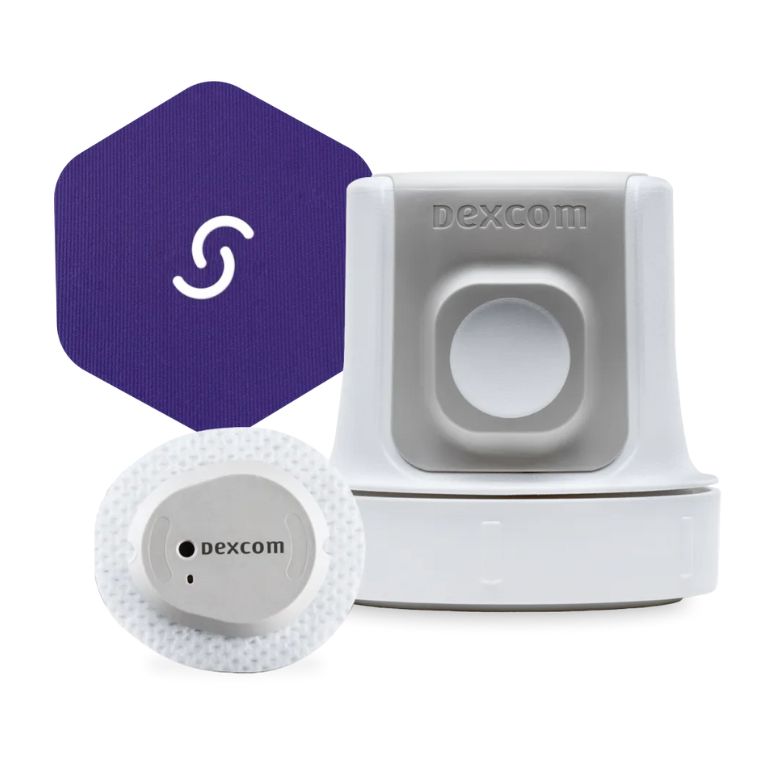
|
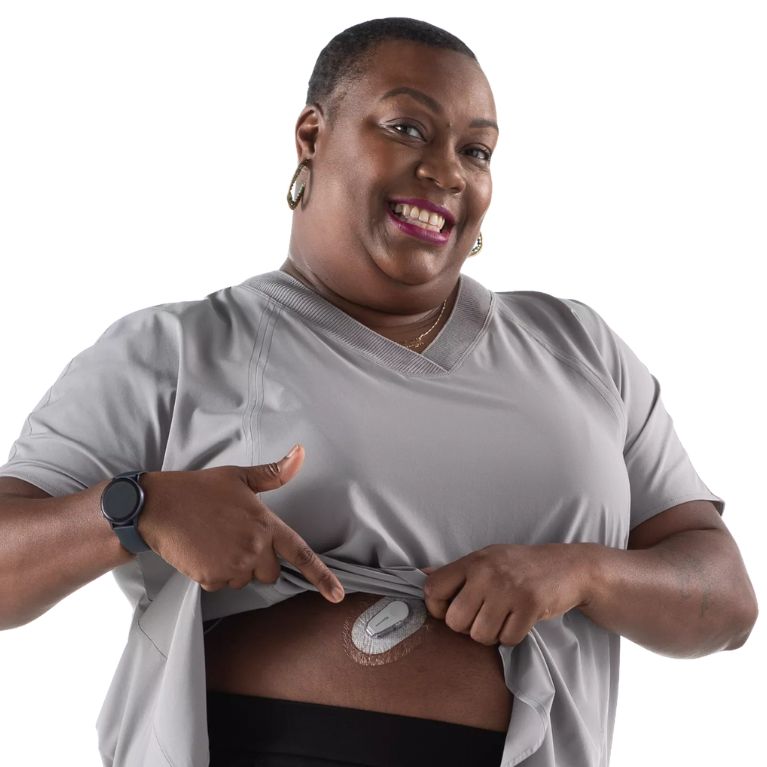
|
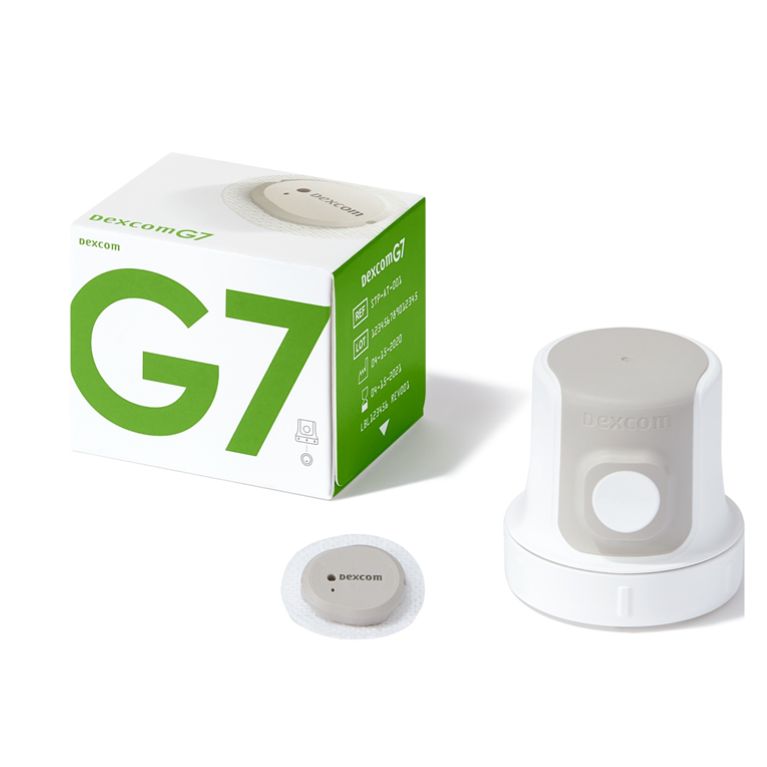
|
|
| Nutrisense | Levels Health | Signos CGM | Dexcom G6 CGM System | Dexcom G7 Sensor/Transmitter | |
| Rating | |||||
| Cost | $225+ per month | $40+ per month | $179+ per month | Varies (based on insurance) | Varies (based on insurance) |
| Type | CGM and metabolic health program | CGM and/or metabolic health program | CGM and metabolic health program | CGM only | CGM only |
| Prescription required | Yes, included in the service | Yes, included in certain Levels plans | Yes, included in the service | Yes | Yes |
| Application | iOS and Android | iOS and Android | iOS and Android | iOS and Android | iOS and Android |
FAQs
Is Nutrisense covered by insurance?
No, Nutrisense is not covered by insurance. Currently, most CGMs are only covered by insurance for people with diabetes. However, you may be able to pay for Nutrisense with FSA/HSA funds. Additionally, many Nutrisense users qualify for free ongoing nutritionist support through insurance.
How much does Nutrisense cost per month?
Nutrisense starts at $225 per month but may cost up to $399 per month, depending on your chosen plan. In addition, if you would like additional dietitian support beyond the first month, you will need to pay extra fees.
Can I get a prescription for Nutrisense?
While the Nutrisense service itself doesn’t require a prescription, the CGM devices do. However, Nutrisense will provide a prescription for you when you sign up for the service as long as you are eligible.
How much does it cost to cancel Nutrisense?
You may cancel the $399 month-to-month plan anytime without incurring a fee. However, if you cancel one of the multi-month plans early, you may be subject to a $100 early cancellation fee.
Our experts
Dr. Aneesha Dhargalkar
Dr. Aneesha Dhargalkar is a board-certified emergency medicine physician currently practicing in West Chester, PA. She graduated cum laude from John Hopkins University in 2002 and from Jefferson Medical College in 2006. After this, Dr. Dhargalkar attended and completed a three-year residency program in emergency medicine at Temple University Health System. Dr. Dhargalkar is the director of her hospital’s wellness provider program and sits on the executive board of both the Chester County Suicide Prevention Task Force and the Unionville Chadds Ford School District Education Foundation.
Dr. Neil Paulvin, DO.
Dr. Neil Paulvin, DO., is a multiple board-certified physician with certifications in Family Medicine, Osteopathic Manipulation, and Anti-Aging and Regenerative Medicine. His practice in Manhattan combines traditional and alternative medicine to help patients live a healthy lifestyle and perform at their best. He has helped Fortune 500 executives, Olympic athletes, top trainers, and A-list celebrities optimize their health, recover faster from injury, and improve their sports performance.
Simran Malhotra MD., DipABLM, CHWC
Dr. Simran Malhotra is a triple board-certified physician in internal medicine, hospice and palliative care, and lifestyle medicine, and a certified health and wellness coach. She is currently practicing part-time as an inpatient palliative care physician at MedStar Health. She completed the T.Colin Campbell Plant-based nutrition certification in 2019, the CHEF culinary coaching certification in 2020, and the WellCoaches health and wellness coaching certification in 2022.
Heather Morsellino
Heather Morsellino is a freelance writer and fact-checker with over four years of experience in healthcare. She has worked as a pharmacy technician, emergency room medical scribe, and anesthesia technician in the operating room and will finish her ADN within the following year.

SaVanna Shoemaker, RDN
Fortune Recommends Writer
About Author
SaVanna is a freelance writer and Registered Dietitian Nutritionist who has written hundreds of evidence-based articles for outlets like Forbes, Healthline, and Verywell Health. She earned her Master of Science in Human Nutrition from The University of Southern Mississippi in 2014. Before becoming a full-time writer, she provided nutrition counseling for pregnant and postpartum women, infants and children, and people with chronic kidney disease. Her professional interests include holistic nutrition, women’s health, and weight loss. She lives in Little Rock with her husband and three children and spends her free time cooking, gardening, and lifting weights.
